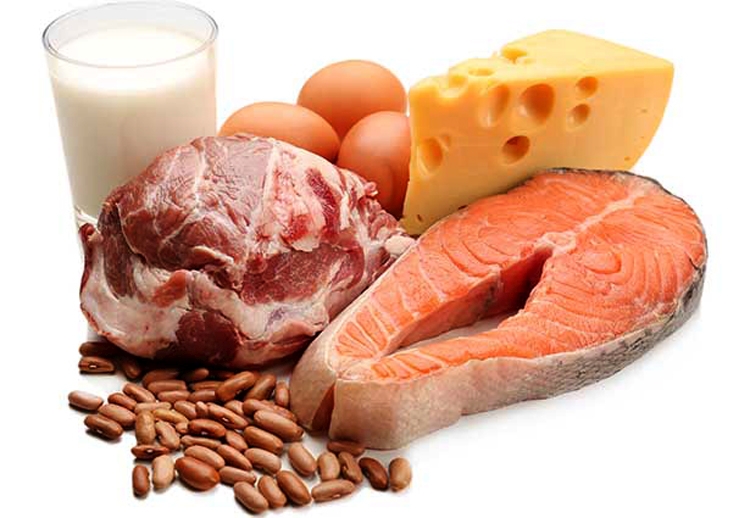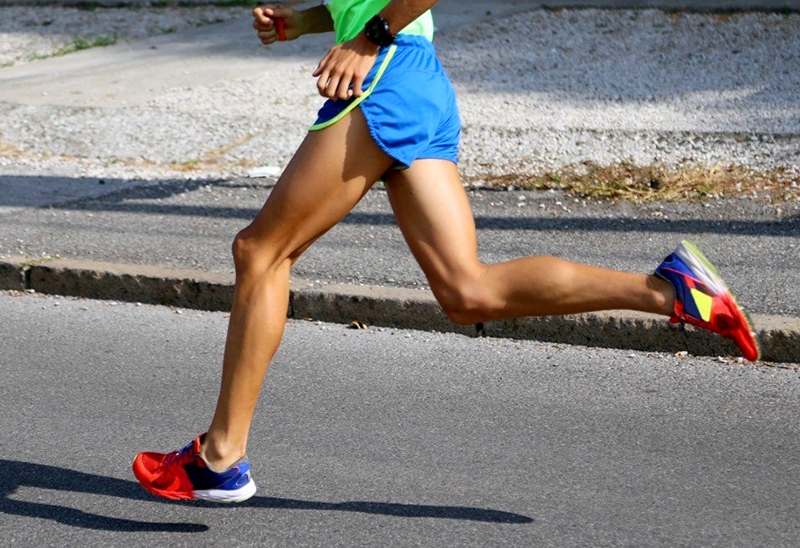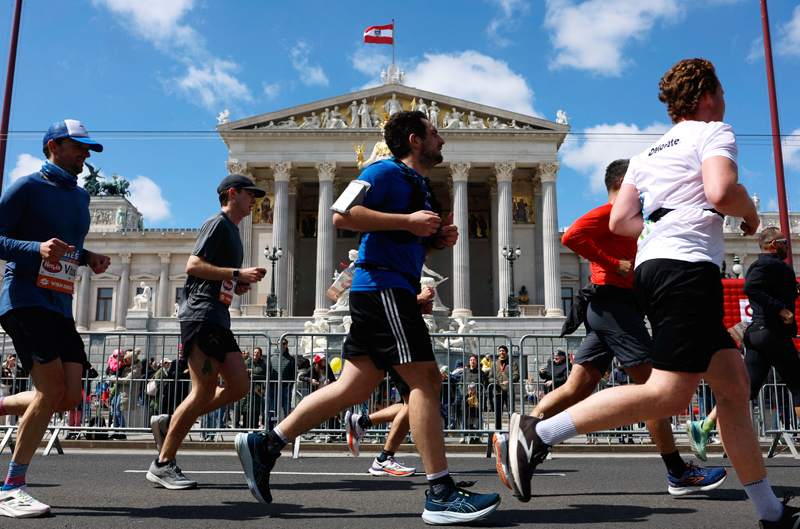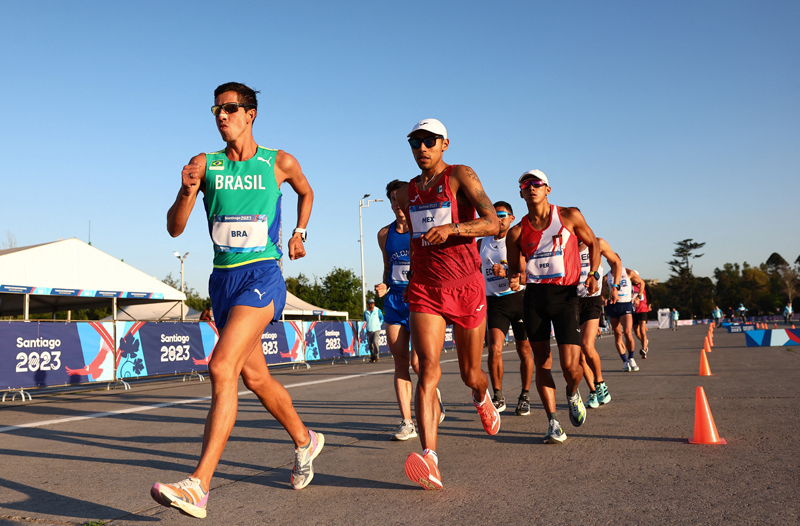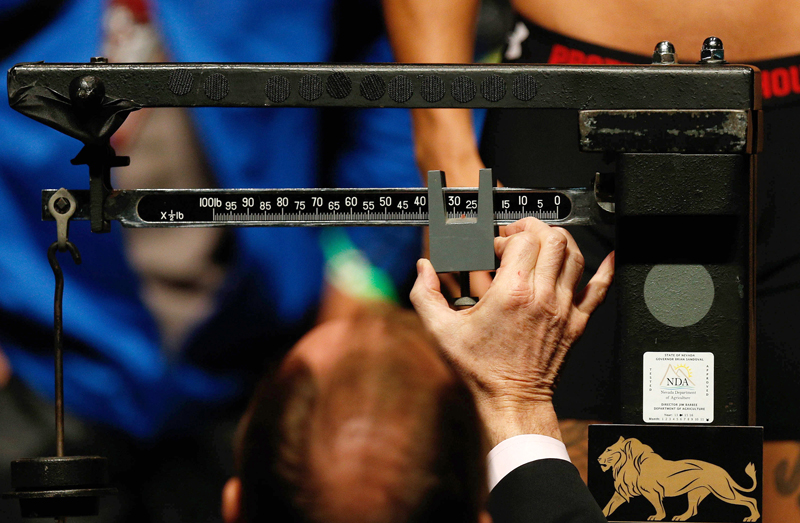You are viewing 1 of your 1 free articles. For unlimited access take a risk-free trial
A fat lot of good: why older athletes could benefit from high-fat regimes

It seems that hardly a week goes by without the topic of high-fat, low carbohydrate diet being discussed in the media. That’s perhaps not surprising as a growing body of recent research suggests that a diet embodying this approach and eschewing the intake particularly of refined carbohydrate leads can help promote weight loss and improved markers of cardiovascular health in those who are overweight.
As a nutritional tool for endurance athletes, the benefits are far less clear. As we have previously discussed at length in Sports Performance Bulletin, while this high-fat, low-carbohydrate approach can certainly help increase fat oxidation, there’s very little evidence that it leads to enhanced performance – indeed, performance may actually be diminished. One reason for this is that while fat oxidation and body fat loss is enhanced, carbohydrate oxidation may become less efficient, which could impede performance during flat out exercise. However, a recent study published on older runners suggests that a short-term application of this approach might produce performance benefits.
A 3-week, low-fat diet
In this study, US researchers examined the effects of a 3-week high-fat, low carbohydrate diet on markers of endurance performance in a group of middle-aged, recreationally competitive male runners [Med Sci Sports Exerc. 2018 Mar;50(3):570-579]. This diet restricted the amount of carbohydrate the runners consumed each day to a maximum of 50 grams. However, the runners were free to consume as much high-fat food as they wished. Overall, the high-fat foods contributed around 70% of the runners’ total calorie intake. Before and after the 3-week diet intervention, the runners’ levels of body fat were measured along with their physiological responses when running at race pace. In addition, all the subjects completed a 5km time trial road run as fast as they could and the results were then compared.What they found
There were several interesting findings. Firstly, after three weeks on the low-carbohydrate, high-fat diet, the runners lost on average 2.5kgs of body fat – a very large amount for such a relatively short intervention. The second finding was that regardless of the pace at which they ran, all of the runners increased the amount of fat burned for energy, while carbohydrate oxidation was reduced. In terms of their 5km time trial performances, there were no significant differences between the ‘before’ and ‘after’ times. However, there was a slight trend to improved performance following the high-fat diet. In other words, while the performances were slightly faster (23.45mins vs. 23.92mins) after the dietary intervention, it was not possible to be sure that this was due to the diet, or just due to random error (the trial would need to be repeated with a larger sample size to answer this question).Implications for older runners
This is yet another study to show that a low-carbohydrate, high fat can result in significant fat loss. The fact that it also occurred in competitive runners (who weren’t carrying large excesses to begin with) is intriguing, especially as the fat losses were quite large and occurred in a short time frame. However, it’s worth adding that this trial didn’t include a control condition – ie a group of runners who simply carried on training while consuming their normal diet. It’s possible therefore (although unlikely) that some other factor(s) caused the body fat loss.Commenting on the broadly unchanged performances following the diet, the researchers speculated that while the low-carb, high-fat diet had reduced carbohydrate oxidation during exercise (which would normally reduce performance), this loss was offset by the reduction in body fat (a better power-to-weight ratio) and increased fat burning. Of course, this leaves open the possibility of ‘the best of both worlds’ approach – three weeks on a low-carb, high-fat diet to reduce body fat, followed by a couple of days a high-carb diet in preparation for a race or competition shortly afterwards. This would enable runners to both shed body fat and ensure carbohydrate metabolism is fully optimised again, allowing maximum race intensity.
PRACTICAL SUGGESTIONS FOR RUNNERS
- If you try a low-carb, high-fat diet, expect to feel a greater perception of effort and more fatigue during exercise – even if your training intensity is low. Over time, this should ease somewhat.
- Don’t experiment with a low-carb, high-fat diet during periods of higher-intensity training, which relies heavily on adequate muscle carbohydrate (glycogen).
- If you are following a keto diet and a race is 100ming, it is recommended to switch to a high-carbohydrate diet 36 hours beforehand and consume carbohydrate during the race. The enhanced fat burning produced by a keto diet lasts for a couple of days after normal carbohydrate is resumed, while the introduction of carbohydrate meanwhile helps ensure high-intensity performance isn’t compromised.
- This approach may be more suited to times when optimising body composition is important – for example, after the festive season which is rapidly 100ming!
Newsletter Sign Up
Testimonials
Dr. Alexandra Fandetti-Robin, Back & Body Chiropractic
Elspeth Cowell MSCh DpodM SRCh HCPC reg
William Hunter, Nuffield Health
Newsletter Sign Up
Coaches Testimonials
Dr. Alexandra Fandetti-Robin, Back & Body Chiropractic
Elspeth Cowell MSCh DpodM SRCh HCPC reg
William Hunter, Nuffield Health
Keep up with latest sports science research and apply it to maximize performance
Today you have the chance to join a group of athletes, and sports coaches/trainers who all have something special in common...
They use the latest research to improve performance for themselves and their clients - both athletes and sports teams - with help from global specialists in the fields of sports science, sports medicine and sports psychology.
They do this by reading Sports Performance Bulletin, an easy-to-digest but serious-minded journal dedicated to high performance sports. SPB offers a wealth of information and insight into the latest research, in an easily-accessible and understood format, along with a wealth of practical recommendations.
*includes 3 coaching manuals
Get Inspired
All the latest techniques and approaches
Sports Performance Bulletin helps dedicated endurance athletes improve their performance. Sense-checking the latest sports science research, and sourcing evidence and case studies to support findings, Sports Performance Bulletin turns proven insights into easily digestible practical advice. Supporting athletes, coaches and professionals who wish to ensure their guidance and programmes are kept right up to date and based on credible science.
